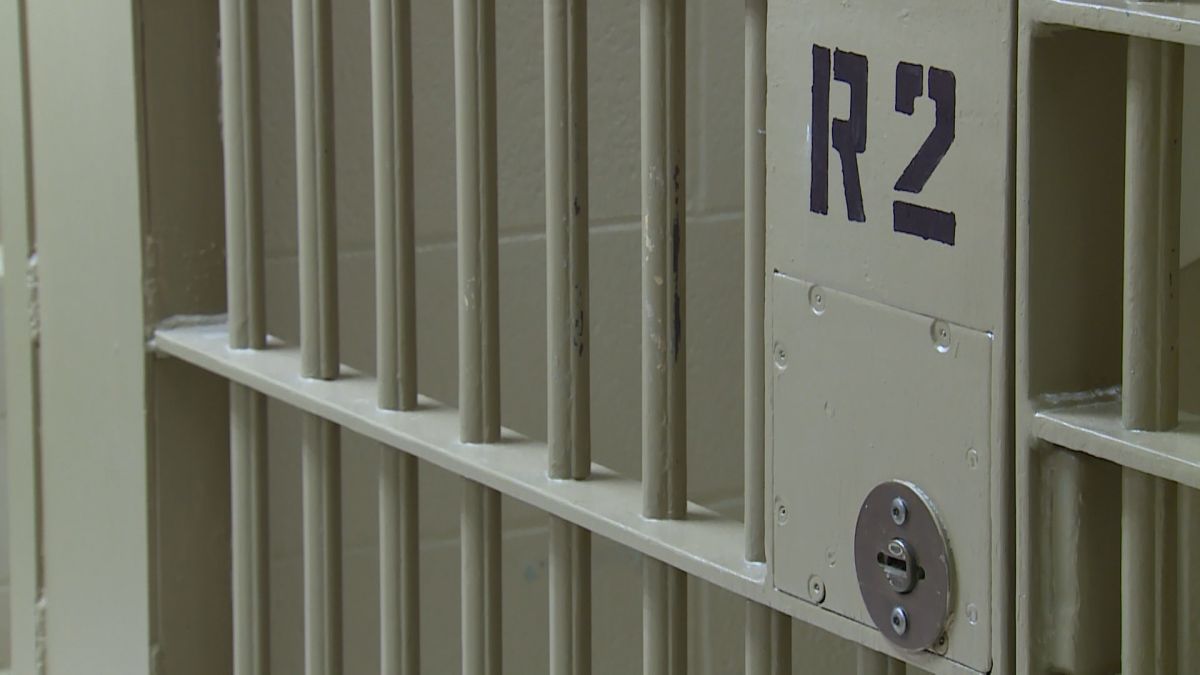
More funding and payment changes are coming to county jails. (WFIU/WTIU News)
The Indiana Department of Correction owes Indiana jails about $12.7 million in payments for housing state offenders — but there is a plan in place to pay it back starting July 1 and avoid the problem in the future.
The state prison system exhausted its appropriation for jail payments earlier this year. At the time, it wasn’t clear how much money counties were losing.
But the DOC provided a spreadsheet showing a county-by-county tally of the arrears. Elkhart County has the highest bill at $1 million with Allen and Marion counties following.
Capt. Michael Culp with the Elkhart County Sheriff’s Office said the county last received a payment from the state in August 2024.
He said, on average, the county houses between 40-50 inmates that are sentenced to DOC. The prison system will generally only accept 20 inmates at a time, which leads to a higher than normal DOC committed population, with longer stays in the jail.
Allen County’s jail is a $20-million operation and Auditor Nick Jordan said the $773,000 owed by the state would fund “a handful or two of confinement officers.” Without that state reimbursement, the county has to rely on property and local income tax revenue.
Annie Goeller, spokeswoman for DOC, said the new fiscal year begins July 1 and the agency has a plan to send the money owed once the funding is received from state budget officials.
“The budget bill addressed a number of issues surrounding county jail payments, including the amount funded per year, when payment requests must be submitted and paid, and the per diem rate,” Goeller said. “DOC is also working on a plan to ensure compliance with this legislation.”
Stephen Luce, executive director of the Indiana Sheriffs’ Association, applauded DOC and legislative leaders for working with sheriffs to make the situation right.
“This is going to be good for the counties, and at the same time I know Commissioner (Lloyd) Arnold is really making this a priority to make sure moving forward that a good process is in place,” he said.
Luce said DOC officials are going to come to the sheriffs’ annual conference in July to give an update.
Background
The appropriation in the current state budget, which ends June 30, was $34 million for the county jail maintenance contingency fund. The fund reimburses sheriffs for two groups of offenders: anyone convicted of a Level 6 felony, as well as anyone being held on higher felonies or parole for IDOC.
Of that amount, up to $25.3 million was set aside for the Level 6 felons at a rate of $40 per day. This group of offenders used to be sent to state prisons until a criminal justice overhaul in 2013. After that, low-level felons were kept in local jails at state expense.
The new state budget increased the line item to $45 million the first year and $41 million the second year.
Luce said the daily per diem rate was also increased to $42, which is “better than nothing.”
A study by the sheriff’s association found costs average about $74 a day to cover inmates. They had hoped to increase the rate to a minimum of $50 to $60 a day but a dismal revenue forecast limited new spending in the budget.
Jordan said the “lack of money has been ongoing for years” and even $42 is still woefully short of the average cost of $60 per day, per inmate to run the Allen County Jail.
Culp said the $42 is also less than the cost to Elkhart County, which averages $55 to $125 per day. The difference in cost is dependent on an inmates needs, such as mental health or other medical issues.
Also significantly, Luce said the budget bill creates a more direct reimbursement of the costs rather than a formula the state used in the past. Now counties must submit their numbers within 60 days.
“They’re going to try to create a traditional billing system instead of using a formula based off of level six holds, which honestly I don’t think it really reflected a good solution for housing,” he said. “I think going to the traditional one is probably going to be much better off moving forward.”
YOU MAKE OUR WORK POSSIBLE.
Indiana Capital Chronicle is part of States Newsroom, a nonprofit news network supported by grants and a coalition of donors as a 501c(3) public charity. Indiana Capital Chronicle maintains editorial independence. Contact Editor Niki Kelly for questions: info@indianacapitalchronicle.com.











